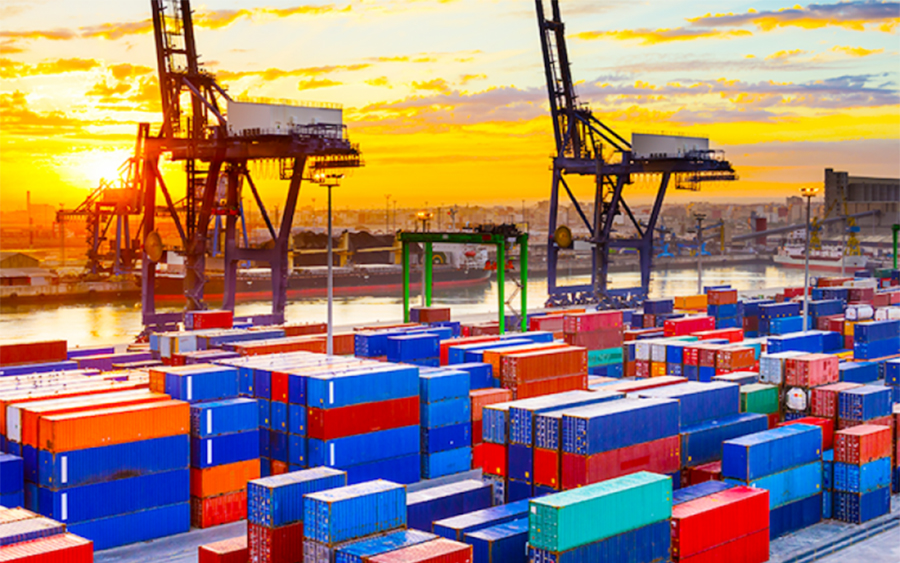Ever since President Muhammadu Buhari signed the African Continental Free Trade Area (AfCFTA), there have been different shades of opinion regarding the impact of the African trade agreement, with the likes of Aliko Dangote and BUA‘s Chairman, Abdul Samad Rabiu, warning Nigeria of a possible setback in the implementation of the agreement. A recently released report has now attested to the negative impact of AfCFTA.
The report stated that the trade agreement among African countries will cause a surge in importation when it comes into full force. It was learnt that the importation rate of Nigeria will shoot up to 251% within 15 years.
[READ ALSO: Nigeria’s decision to sign the AfCFTA might be a grievous mistake after all]
Nigeria signed the agreement in July, a year after over twenty other African countries signed. The delay was caused by anxiety and doubt over the efficiency of the AfCFTA as Nigeria had been in other African trade agreements that weren’t productive.
The new report is a research work done by the Centre for Trade and Development Initiatives of the University of Ibadan. The report stated that the increase in importation will be driven by the goods currently attracting 20% import duty. According to the report, Nigeria had the least import penetration in Africa from African countries.
“This obviously makes the country an export target for many African countries in the AfCFTA. Nigeria is trailed by South Africa, Tanzania, Cameroun and Egypt on the same level recording about 30 per cent import penetration.
“A three-phase liberalization tariff rates from 5%, 10%, and 20% to zero will likely generate a higher surge of imported manufactured goods to the tune of about 159.5%, 183% and 251.4%, respectively on the average during the 15-year period. The import growths would be higher if there were no room for exclusion.”
[READ ALSO: Signing AfCTA agreement; Our concerns for Nigeria by CSL Stockbrokers]
The report also explained that, “Import will surge in all the manufacturing sectoral groups and by extension the 77 subsectors in the third phase of the liberalization. Particularly, tariff cuts would trigger increases in import for food, beverages and tobacco, 91%; chemical and pharmaceutical products, 180.7%; plastic and rubber products, 111.6 per cent; wood and wood products, 96.2%; textile, apparel and footwear, 55.2 per cent; non-metallic, 67.2%; electrical and electronics, 218.2%; and motor vehicles and Assembly, 2000%.”
“The change in domestic outputs of the manufacturing sector is negative and ranges from -10.00% to -0.228%; thus indicating that operators in the sector may close shop.
“Investment and employment in all industries will fall in the third phase (2029-2033) implementation of AfCFTA.”
The research work commissioned by the Manufacturers Association of Nigeria to investigate the potential impact of AfCFTA on the manufacturing sector, as well as its offensive and defensive imperatives, stated that the free trade would negatively affect output in the sector in Nigeria, most importantly, motor vehicle and miscellaneous assembly, chemical and pharmaceutical and electrical and electronic industries.
The report disclosed that South Africa accounts for 34.7% of Nigeria’s import from African countries in 2017, making it the leading supplier of African goods to Nigeria. Adding that 79.3% of Nigeria’s import from Africa in 2017 was from South Africa, Morocco, Côte d’Ivoire, Swaziland and Egypt.
[READ ALSO: Agriculture a major threat to Nigeria’s AfCFTA drive -Stakeholders]
Dangote and the Manufacturers Association of Nigeria (MAN) have also raised concern regarding the AfCFTA because while Nigeria is a viable business option for growth for the African continent, other African countries could be a hostile business environment for Nigerian goods to thrive.
Is Nigeria making a grievous mistake? Although the AfCFTA was created to promote a single market and free movement of goods among African countries, the deal might not augur well for Nigeria after all. Nigeria has porous borders, a situation that makes it easy for goods to be moved into the country without adequate checks. The AfCFTA could, therefore, make it easier for more goods to be dumped into the country going forward.
Also, African countries are known for not always keeping to trade agreement like AfCFTA. In an interview in April, the Chairman of BUA Group, Abdulsamad Rabiu, stated that the AfCFTA could end up like previous treaties that were largely futile trade-relationship. Rabiu stated that treaties like Ecowas Trade Labourisation Scheme (ETLS) had not benefited some businesses in Nigeria.
